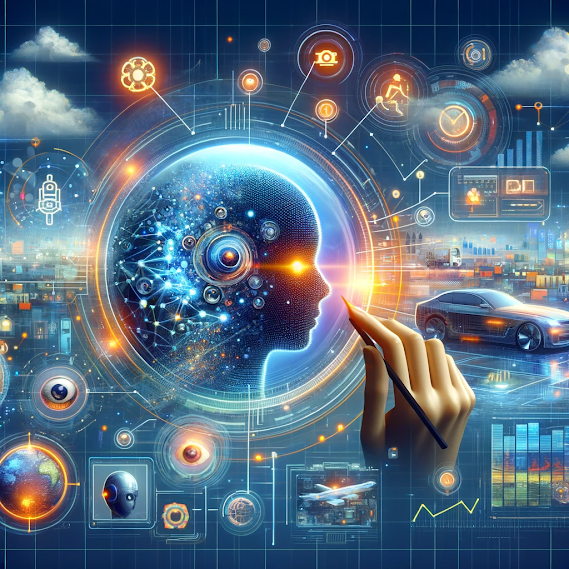The Future of HR: Marrying Data and AI with Human-Centric Operations
The Future of HR: Marrying Data and AI with Human-Centric Operations
The domain of Human Resources (HR) is undergoing an unprecedented transformation. This shift, driven by advancements in data analysis and artificial intelligence (AI), is not merely a change but a revolution redefining workforce management. HR professionals are at the cusp of a new era, where the goal is to harmonize cutting-edge technology with the irreplaceable human touch.
The Quest for Balance in HR
In this new technological dawn, the foremost challenge for HR leaders is to strike a balance between automation and empathy. The objective is to harness the power of data and AI to streamline operations and inform decision-making without sidelining the human aspect that is at the core of HR. This delicate equilibrium is what will define the success of future HR operations.
Intelligent HR: Redefining Workforce Management
Intelligent #HR marks the emergence of a new paradigm characterized by the strategic integration of data analytics and #AI within HR processes. By automating mundane tasks, identifying patterns, and predicting workforce trends, HR departments can foster environments that are not just productive but also attuned to the emotional and professional needs of employees.
Revolutionizing Recruitment and Onboarding with AI
AI is already making waves in recruitment by assessing candidates more accurately and predicting job performance, thereby reducing biases that often plague the hiring process. Moreover, #AI is streamlining the onboarding process, offering personalized experiences that help new hires acclimate to their roles through AI-driven orientation and guidance.
Personalized Learning and Wellbeing through AI
AI's reach extends to employee development, enabling HR to design customized training programs that align with individual career aspirations and learning preferences. Furthermore, data and #AI are being leveraged to enhance employee wellbeing initiatives, recognizing the connection between a healthy lifestyle and increased productivity. AI tools can analyze employee feedback and health data to recommend personalized wellness plans, contributing to a happier, more engaged workforce.
HR Tech: A Complement to Human Insights
As we venture deeper into this data-driven era, it is essential to uphold the 'Human' in Human Resources. AI and data analytics are tools meant to augment, not replace, the human elements of empathy, judgment, and interpersonal connection that are the hallmarks of effective HR practice. The ultimate goal is to use technology to enhance the human-centric nature of HR, providing a support system that enables HR professionals to focus on more strategic, high-value tasks.
Integrating AI in HR: The Global Perspective
Globally, organizations are recognizing the potential of AI in transforming HR. According to a report by the Boston Consulting Group, leading companies that have adopted AI in HR practices are seeing substantial improvements in employee satisfaction, turnover, and business outcomes. These organizations use AI not only for efficiency but as a strategic tool to gain insights into employee engagement and talent management.
The Ethical Dimension of AI in HR
The integration of AI in #HR also brings to the fore critical ethical considerations. Issues surrounding data privacy, consent, and the potential misuse of employee information necessitate a thoughtful approach to AI implementation. It is imperative for HR leaders to establish clear guidelines and policies that safeguard employee rights while embracing the advantages of #AI.
Preparing for the AI-Driven HR Landscape
As AI continues to evolve, HR professionals must stay abreast of technological developments and be prepared to integrate these tools into their workflows effectively. This requires continuous learning, upskilling, and cross-functional collaboration with #IT departments to ensure that AI solutions align with the organization's HR strategies.
A Human-Centric Future Powered by AI
The future of HR lies in creating a symbiotic relationship between AI technology and human-centric operations. As AI becomes more embedded in HR functions, it will enable professionals to make more informed decisions, offer personalized employee experiences, and build a workforce that is both highly efficient and deeply connected.
The success of #AI in HR will depend on the ability to balance technology with intuition, to blend data with empathy, and to combine automation with genuine human engagement. As we embrace this future, HR leaders are not just adopting new technologies; they are shaping a new vision for the workplace, where data and AI serve to amplify the human spirit, not to diminish it.

.jpeg)
.jpeg)


Comments
Post a Comment